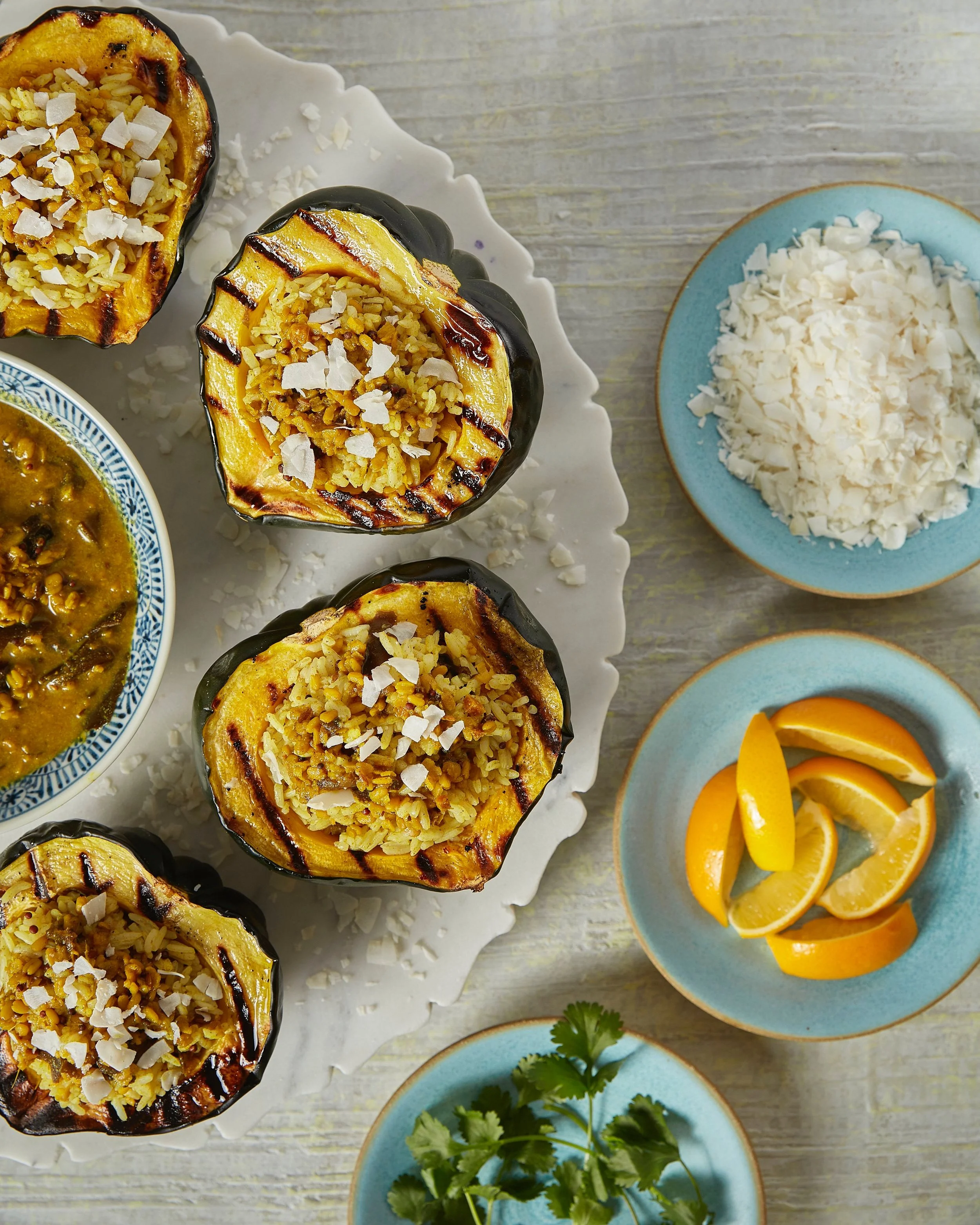Isfeng Andalusian Donuts
Recipes from Hélène Jawhara Piñer’s new cookbook, Sephardi, invite us to reflect and connect this Hanukkah. Photography by Scott Goldsmith.
Sephardi: Cooking the History , Hélène Jawhara Piñer’s new cookbook delves deep into Jewish history to illuminate dishes that were once prepared in times fraught with anti-Semitism: food was a way to reveal and preserve Jewish identity. This recipe is excerpted from the book with the kind permission of the author.
Also called sfenğ, this fried pastry is common among Jews and Muslims especially in Morocco and Israel. It is also calledesponja (“sponge”) in Spanish, a word derived from the Arabic term sjenğ of the same meaning. The recipe dates back to the thirteenth century, when this and similar dishes were popular in al-Andalus. Nowadays in Morocco, it is prepared bystreet vendors, although Jews mainly serve the dish for Hanukkah. This Jewish holiday is also known as “Festival of lights,” and lasts for eight nights and eight days, to commemorate the miracle of the menorah candle in the Second Temple (168 BCE): the candle only had just enough oil to burn for a single day, but it lit the temple for eight nights leaving the Jews enough time to finish the temple’s construction. It is in memory of this sacred oil that it is tradition to eat fried food for Hanukkah.
Isfeng: The Andalusian Donut
Ingredients
1 tbsp fresh yeast
⅓ cup (70 ml) lukewarm water
3 cups (450 g) flour
2 tsp sugar
½ tbsp salt
1 ⅔ cup (330 ml) lukewarm water
Neutral oil for frying
Instructions
In a small bowl, dilute the fresh yeast with lukewarm water.
In a large bowl, or in the bowl of a food processor, put the dissolved yeast, flour, sugar, and salt. Mix with the hook and gradually add the water. The dough should be sticky.
Mix for 15 minutes and cover the bowl. Rest overnight (or for at least 4 hours).
Then, heat the oil in a frying pan or in a deep fryer, over medium-high heat.
Lightly dip your hands into the water and take a portion of the dough (the size of a golf ball).
Make a hole in the middle of the dough and stretch it well. Then, fry the dough for 30 seconds to one minute, turning it over once.
These are usually eaten on their own, but you can sprinkle them with sugar and lightly dip them in honey if you want them to be sweet.
Cook with Hélène Jawhara Piñer:
And a special Hanukkah 75 cocktail from TABLE Magazine!
Sephardi: Cooking the History can be purchased through your favorite bookstore or online. For the rest of our article on Sephardi, click here.
Story by Maggie Weaver / Photography by Scott Goldsmith/ Styling by Keith Recker / Food by Veda Sankaran and Cécile Desandre-Navarre
12 Month - 6 issue subscription












Indulge in the taste spring with this delicious Cherry Galette